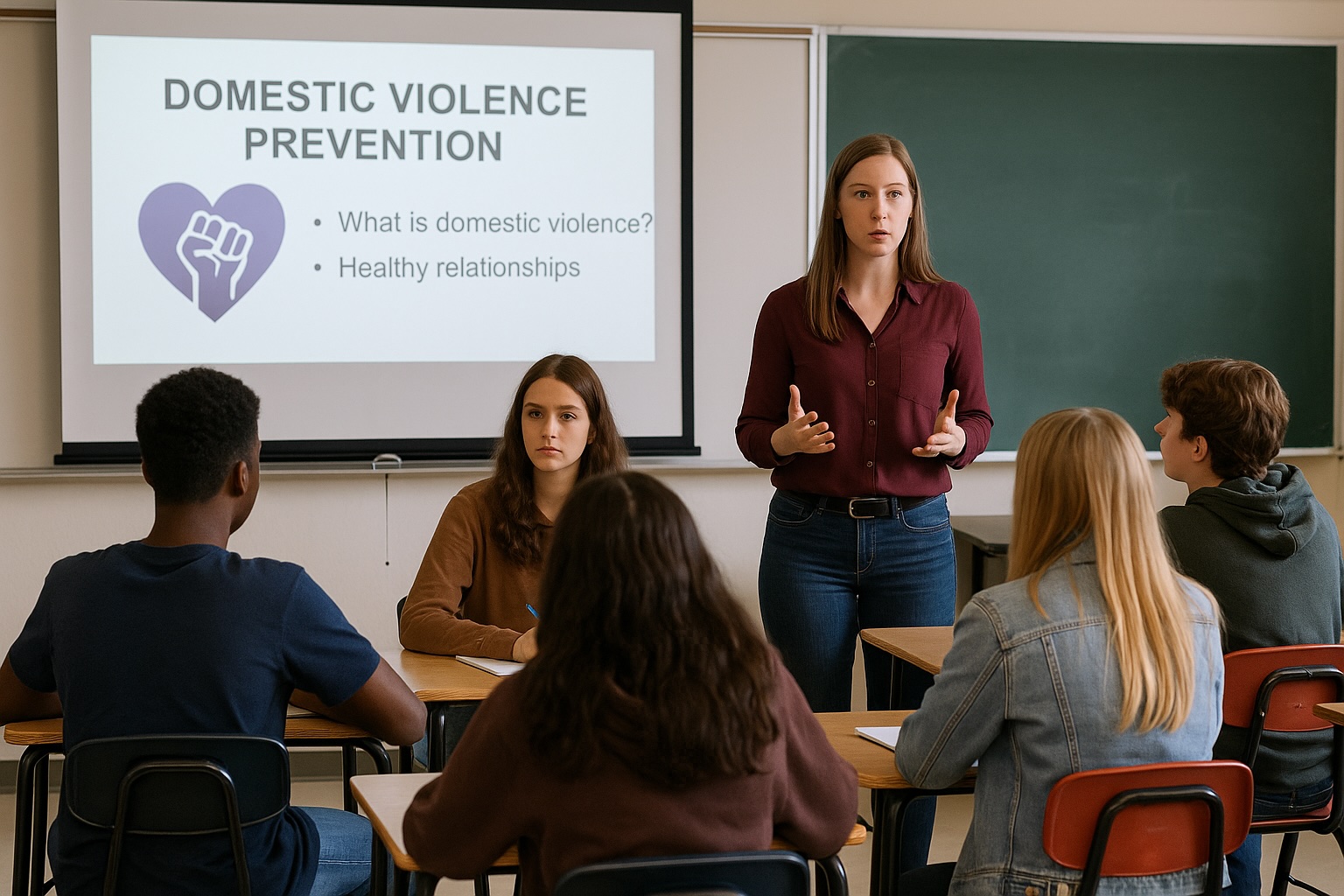📰 Washington Schools Introduce Domestic Violence Prevention Education to Break the Cycle
Washington schools are adopting prevention education programs to teach consent, respect, and healthy relationships to stop domestic violence before it starts.

Domestic violence prevention doesn’t start in courtrooms or shelters — it starts in classrooms. Across Washington, schools are taking proactive steps to teach young people about consent, respect, and healthy relationships before harmful patterns take root.
With the state ranking among the highest for domestic violence-related homicides in the Pacific Northwest, advocates say these early prevention efforts are not just helpful — they are essential. By changing cultural norms in adolescence, Washington hopes to reduce domestic violence rates for generations to come.
What Students Learn in Prevention Programs
1. Consent Education
Students learn what it means to respect personal boundaries, how to ask for consent, and how to recognize when consent is not freely given.
2. Building Healthy Relationships
Programs emphasize trust, equality, and communication, teaching young people how to form relationships free of control, jealousy, and violence.
3. Recognizing Warning Signs
Students are taught to identify behaviors that can escalate into abuse, such as isolation, monitoring, or controlling behavior.
4. Bystander Intervention
Perhaps most importantly, young people learn how to safely intervene when they see harmful behavior, creating a culture of accountability among peers.
Why Prevention Matters in Washington
High DV Homicide Rates
Washington consistently ranks high in DV-related homicides. Prevention efforts seek to address this by stopping abuse before it escalates to lethal violence.
Reducing Reliance on Crisis Systems
By preventing abusive relationships from forming, fewer survivors will need to depend on overburdened shelters, hotlines, and emergency systems.
Changing Cultural Norms
Education programs help break the cycle by reshaping cultural attitudes that excuse or normalize abuse. Teaching respect early helps build a foundation of empathy and accountability.
Programs in Action Across Washington
Coaching Boys Into Men (Spokane)
Trains coaches to teach male athletes about respect, consent, and challenging harmful peer norms.Expect Respect (Seattle-area middle schools)
Engages students in interactive sessions on healthy relationships, conflict resolution, and standing up to abuse.Survivor Storytelling (Nonprofit Partnerships)
Local nonprofits collaborate with teachers to bring survivor voices into classrooms, giving students real-world insight into the impact of abuse.Peer Leadership Programs
Students are trained as peer educators, spreading awareness and modeling respectful behavior within their own circles.
Community and Policy Support
Advocates stress that prevention programs succeed when supported by policy and funding. In Olympia, lawmakers are considering proposals to:
Expand DV prevention curricula statewide.
Require teacher and counselor training on identifying abuse.
Fund partnerships between schools and local advocacy groups.
Communities are also stepping in, with parents and school boards recognizing the value of prevention programs not just for safety, but for fostering healthier school cultures.
The Long-Term Impact of Prevention
Prevention is not a quick fix — it’s a generational investment. By teaching middle and high school students skills for healthy relationships:
Fewer teens will experience dating violence.
Fewer adults will perpetuate cycles of abuse.
Communities will see long-term reductions in DV-related calls, shelter use, and homicides.
As advocates put it, “Every child taught respect today is one less abuser tomorrow.”
Conclusion
Washington schools are planting seeds of cultural change by making domestic violence prevention part of education. Through consent training, bystander intervention, and survivor-informed lessons, young people are learning the skills they need to create safer futures.
Prevention education is more than a school program — it’s a life-saving investment. By reaching students early, Washington is building communities where respect, empathy, and accountability replace cycles of abuse.
FAQs
1. What is prevention education?
School-based programs that teach consent, healthy relationships, and bystander skills.
2. Why is it important in Washington?
Because the state has high DV homicide rates, making early prevention critical.
3. What age groups are targeted?
Primarily middle and high school students, when relationships are first forming.
4. What programs are being used?
Coaching Boys Into Men in Spokane, Expect Respect in Seattle-area schools, and nonprofit partnerships statewide.
5. What’s the ultimate goal?
To change cultural norms and reduce domestic violence long-term.
